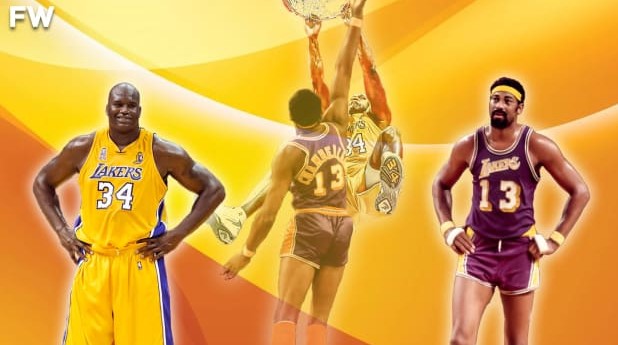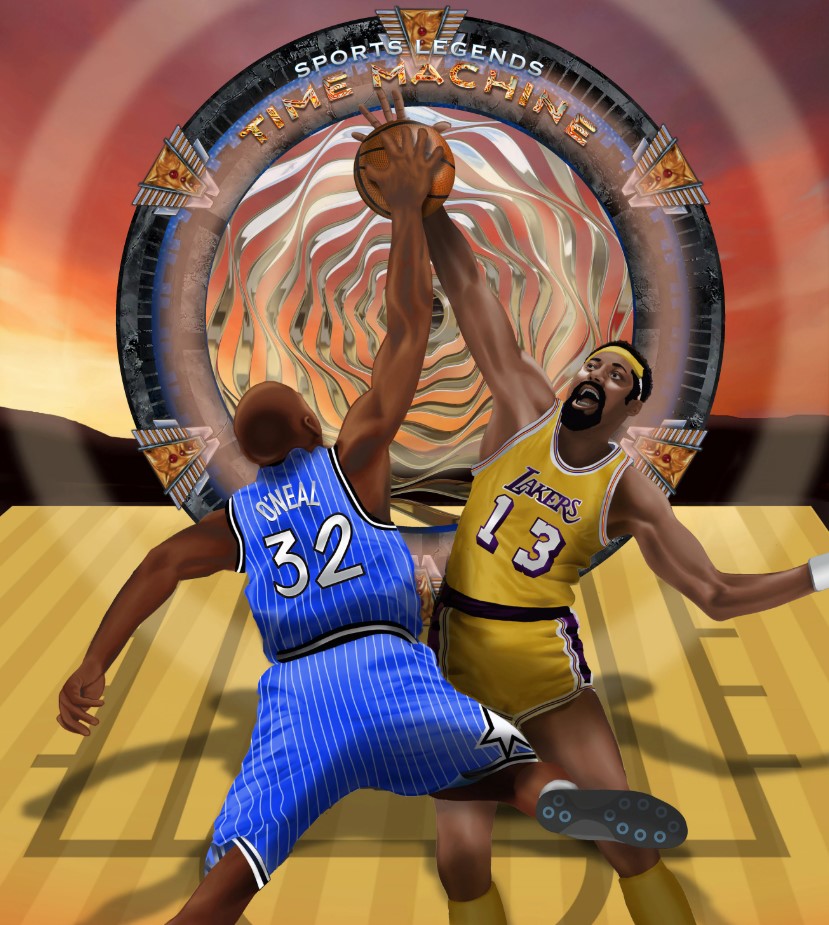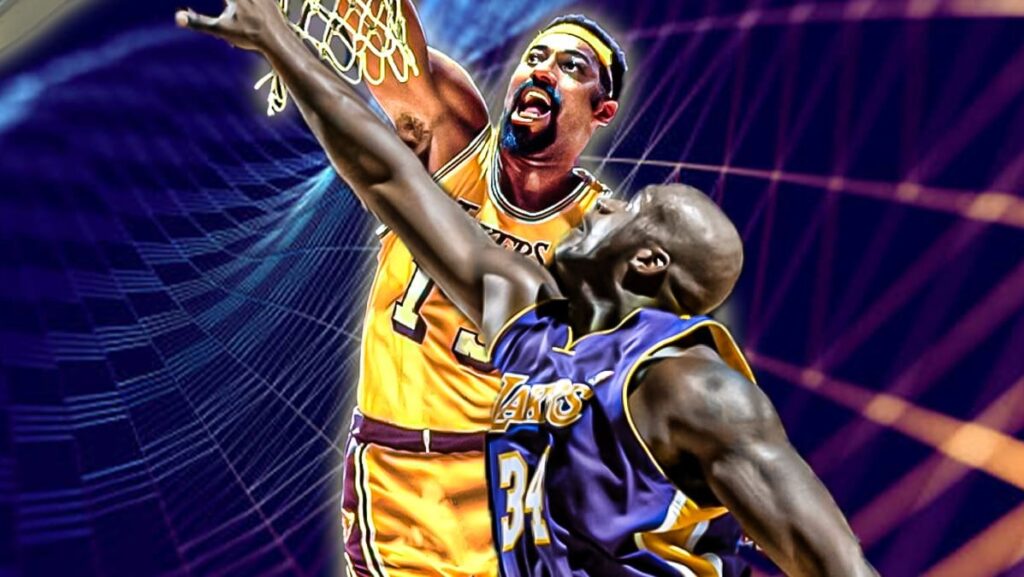Phil Jackson Opens Up: The Subtle But Striking Differences Between Wilt Chamberlain and Shaquille O’Neal
In a rare and candid reflection, legendary NBA coach Phil Jackson recently shared his firsthand experiences and insightful observations comparing two of the most dominant centers the league has ever seen—Wilt Chamberlain and Shaquille O’Neal—offering a perspective that only someone who has both played against and coached at the highest levels could provide.

Having played six seasons against Wilt Chamberlain during the fiercely competitive era of the late 1960s and early 1970s, Jackson developed a deep respect for Wilt’s athleticism, but also noticed certain tendencies that made him less aggressive when faced with smart defensive pressure, particularly when opponents anticipated his reactions and forced him into uncomfortable situations.
Jackson described Wilt Chamberlain as a man of incredible physical gifts and raw athleticism, but one who was generally slow to anger and often seemed to operate within certain psychological or strategic limitations that prevented him from fully unleashing his overwhelming physical dominance in every game situation.
According to Jackson, one of the fundamental defensive teachings at the time was to deliberately place your body in Wilt Chamberlain’s driving path—not necessarily to stop him outright, but to create the illusion of a potential offensive foul, a tactic that would often cause him to hesitate or retreat from fully committing to his powerful moves.
This subtle psychological strategy, according to Jackson, revealed a critical limitation in Wilt’s game—he was so aware of the possibility of offensive fouls or over-aggression that he would sometimes stop being the force of nature everyone feared, opting instead to pull back or defer, which was not something typically seen in Shaquille O’Neal’s game.
Despite that mental hurdle, Wilt Chamberlain still had a well-rounded offensive arsenal that often gets overshadowed in historical debates, including a high-arching fallback turn-around shot, the classic “dipper” move, and a smooth finger roll, all of which allowed him to score with grace and finesse rather than brute strength alone.
Phil Jackson reminded listeners that Wilt was not just a scorer or rebounder, but also once led the entire NBA in assists, showcasing a level of court vision and unselfishness that is rarely associated with dominant big men, further proving that Wilt’s game had layers that many modern fans may overlook.

Turning his attention to Shaquille O’Neal, Jackson acknowledged that while Shaq was undoubtedly one of the most physically imposing players of his era, and possessed remarkable bounce and speed for a man of his size, he did not quite have the same level of all-around athleticism that Wilt Chamberlain brought to the floor.
Shaquille’s explosiveness in the paint, his incredible footwork in confined spaces, and his ability to collapse defenses with a single power dribble made him nearly unstoppable, yet Phil Jackson pointed out that endurance was one area where Shaq did not match up favorably against Wilt’s near-superhuman stamina.
While Shaq had the kind of short-burst energy that allowed him to dominate quarters or halves, Jackson believed that Chamberlain’s long-distance track background and his ability to log heavy minutes without losing effectiveness made him a more consistent physical presence over the course of an entire game or season.
One of the key technical differences Jackson noted was the use of the jump hook—a staple move in Shaquille O’Neal’s offensive toolkit that was not part of Wilt’s game, further illustrating how each player’s approach to low-post scoring was shaped by the era and style in which they played.
Wilt’s offensive execution relied more heavily on touch shots, finger rolls, and fadeaway techniques, which were both graceful and efficient in their own way, whereas Shaq often preferred physicality over finesse, using the jump hook to bulldoze defenders and force mismatches around the basket.
Despite their many strengths, Jackson did not hesitate to point out that both Wilt and Shaquille shared a major weakness that followed them throughout their careers—free-throw shooting—a flaw that became a strategic liability at times, allowing opposing teams to exploit their inefficiency at the line with deliberate fouling tactics.
Whether it was Wilt’s unconventional underhanded technique or Shaq’s notorious struggles from the stripe, neither player was able to master this fundamental skill, which in some cases limited their ability to close out tight games or maintain momentum when intentionally fouled.
Jackson’s remarks serve not only as a historical analysis but also as a philosophical commentary on how greatness in basketball is never just about physical tools—it’s also about mindset, adaptability, and the small mental edges that separate the merely dominant from the truly unstoppable.

While Wilt Chamberlain remains a statistical marvel whose records still stand the test of time—such as the mythical 100-point game and the 50-point-per-game season—his internal restraint and aversion to aggressive confrontation may have cost him moments of absolute killer instinct on the court.
Shaquille O’Neal, by contrast, embraced confrontation and thrived in chaos, but his struggles with conditioning and free-throw consistency meant that his dominance was often more situational, dependent on coaching schemes and game tempo rather than pure willpower and physical superiority over prolonged stretches.
Phil Jackson’s rare insight underscores that comparing legends is not simply a matter of counting championships or statistics—it’s about understanding who they were as players, how they responded to adversity, and how their unique gifts were both used and, at times, left untapped.
As someone who witnessed Wilt’s prime from the trenches and helped guide Shaq to three consecutive championships as a coach, Jackson’s words carry the weight of lived experience, offering fans a deeper, more nuanced understanding of two iconic figures in the story of the NBA.
In the end, Jackson did not crown either man as greater than the other, but instead illuminated how both Wilt Chamberlain and Shaquille O’Neal redefined the center position in different eras, each bringing unmatched physical prowess and unique limitations that shaped the way the game evolved around them.
And for those who love the game—not just the highlights, but the strategy, psychology, and legacy—Phil Jackson’s reflections are a gift, a rare window into what truly defines greatness when two giants of the hardwood are measured not just by numbers, but by their presence, style, and mentality.